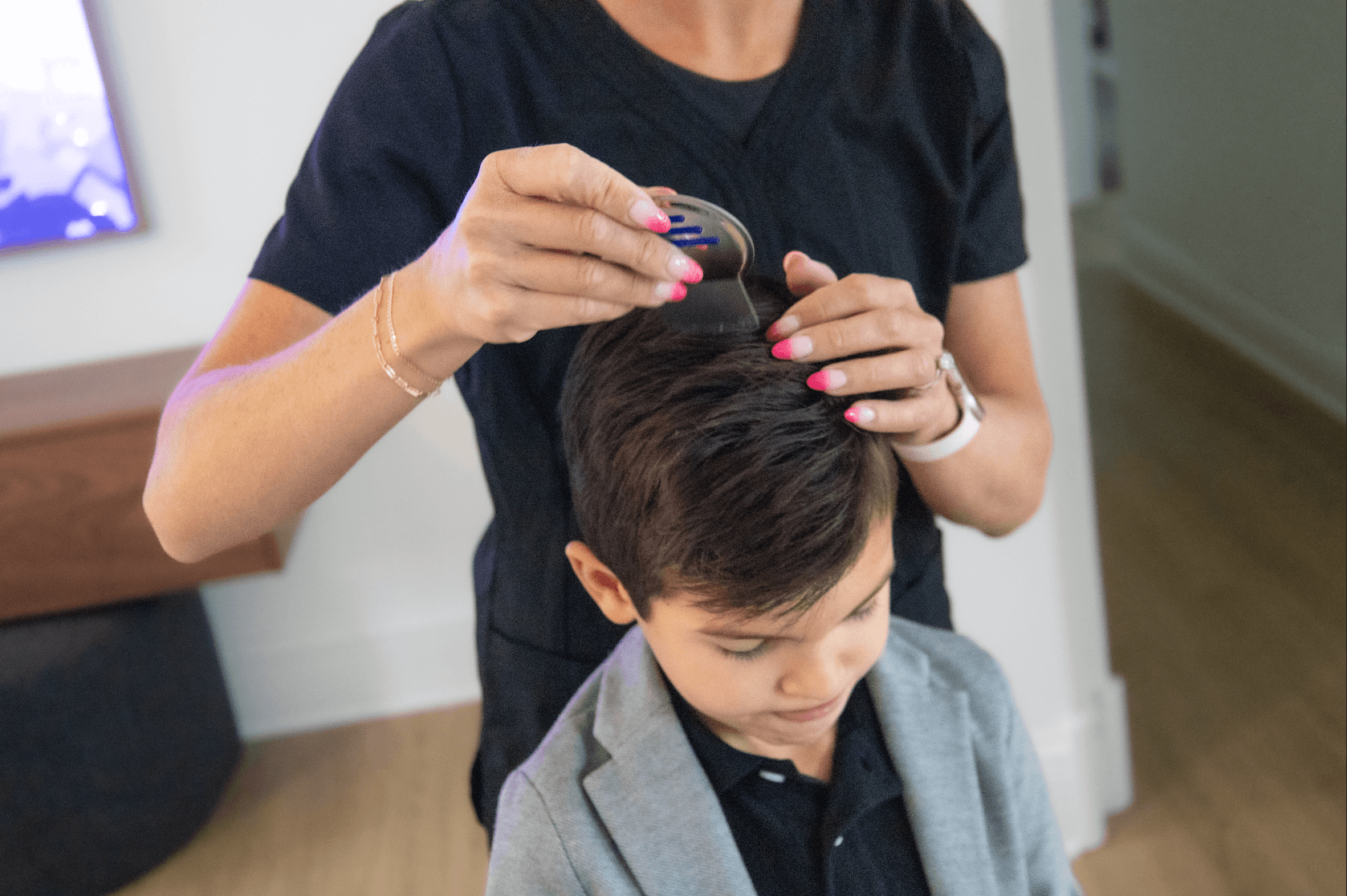

Navigating Lice Control with Kids
When a child comes home with lice, it’s natural to feel overwhelmed, especially with the social and logistical factors involved. Kids with lice face unique challenges at school, with friends, and at home with siblings. By understanding how lice really spread and knowing what actions are actually effective, parents can reduce the spread while making the process stress-free for everyone.
How to Manage Lice at School
Schools often have specific policies in place for lice, but it’s important to focus on factual information rather than common myths. Here’s what parents should keep in mind to handle lice effectively:
- Communicate with the School: Informing your child’s teacher or school nurse can help reduce the chances of lice spreading, as they may take preventive steps.
- Avoid Isolation: There’s no need to keep kids isolated if they’ve had a professional lice treatment. Most schools allow students to return once treatment has begun.
- Prepare Your Child: Kids often feel self-conscious about lice. Reassure them it’s common, and arm them with a simple response in case classmates ask.
Keeping Friends Safe Without Stigmatizing
Lice aren’t caused by poor hygiene and don’t make anyone “dirty.” Approaching lice calmly can help kids maintain friendships without unnecessary worry.
- Limit Head-to-Head Contact: Explain to your child that lice are usually spread through direct head-to-head contact. By encouraging them to be mindful of this, you reduce the chance of spreading.
- Be Honest with Close Friends: It can be helpful to inform the parents of close friends, especially those they play with frequently. This is often appreciated, and it helps everyone take proactive steps.
- Share Facts, Not Fear: Teach your child about lice in simple, factual terms. Remind them lice don’t jump from one head to another; they need close contact.
Lice and Sibling Relationships
If you have multiple children, you probably know the moment you hear one of them cough that you’re going to wind up with a couple of sick kinds on your hands. When one sibling has lice, it can be challenging to prevent it from spreading to others, but it’s completely possible. Here are ways to manage it within the household:
- Assign Personal Items: Designate separate items, like combs, pillows, and towels, for each sibling until lice are fully treated. Even though lice can’t live long on these surfaces, it minimizes contact points and teaches kids to be mindful.
- Create a Treatment Routine: Arrange a system that prevents lice from spreading by treating affected individuals promptly with proven combing methods.
- Stay Calm and Consistent: Kids pick up on their parents’ stress. Treating lice as a manageable situation rather than a crisis can make a big difference in how siblings respond.
When to Call in Professional Help
Many families find that professional lice removal services simplify the process and prevent recurring infestations.
- For Immediate Resolution: If you want instant eradication of the infestation, a lice clinic guarantees results after just one visit.
- Safe and Reliable Methods: Professional treatments are an effective approach without relying on over-the-counter products, which often don’t work as expected.
- Support After Treatments: Lice clinics don’t just treat you for lice and send you on your way. They provide valuable advice on aftercare, so you don’t wind up with a reinfestation.
Making Lice Management Easier
Dealing with lice is a temporary inconvenience, but it’s one that can be managed with knowledge and support. By staying calm and proactive, parents can make sure lice are eliminated quickly and prevent them from spreading further.
The Lice Removal Network provides a bridge between patients seeking care and a convenient lice clinic near them. Visit the network to find the lice clinic closest to you.
Frequently Asked Questions:
Can siblings go to school if one has lice?
Yes, siblings can usually attend school even if one has lice, as long as they don’t have any signs of lice themselves. Schools may ask for regular checks to ensure they remain lice-free.
Should I treat my child for lice if a classmate has it?
If a classmate has lice, it’s best to check your child regularly but only treat them if you find lice or nits. Preventive treatments aren’t typically necessary and won’t stop lice if they’re not already present.
Do you need to isolate if you have lice?
Isolation isn’t usually necessary for lice, though it is a common tactic. Once treatment begins, most schools and activities allow attendance, as lice are primarily spread through direct head-to-head contact, not casual interactions.
